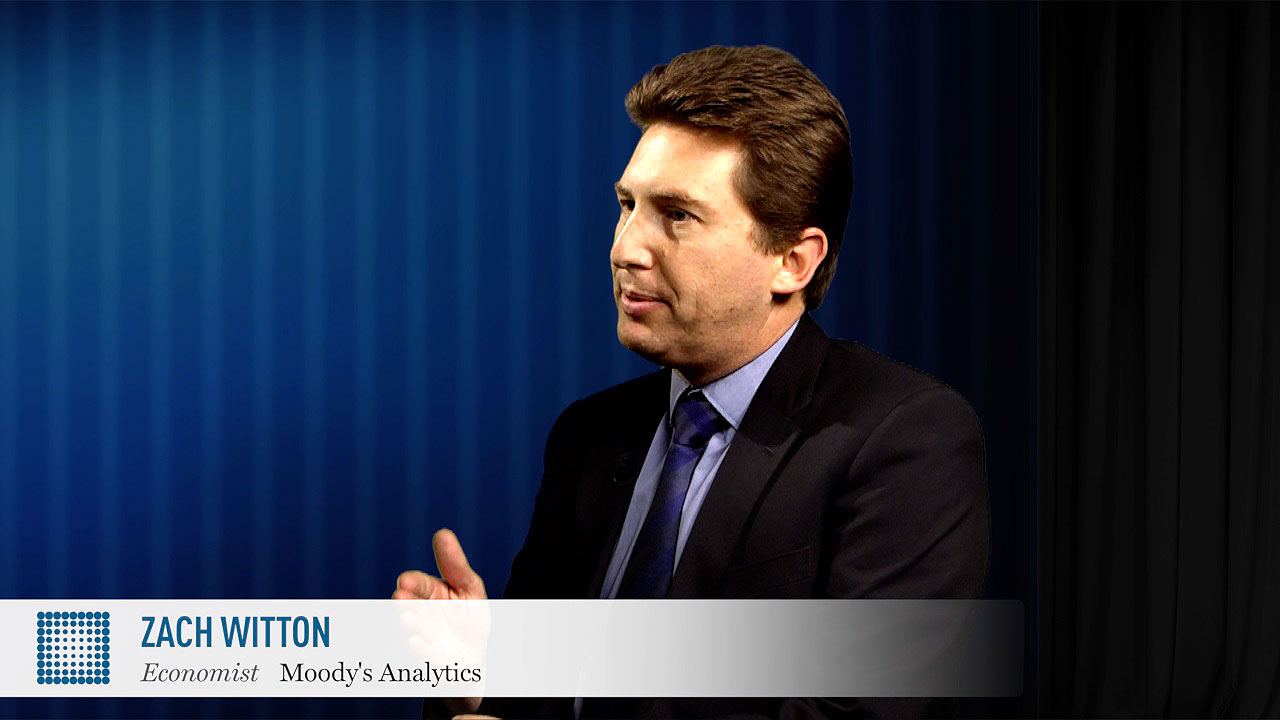Are British banks stressed out? Upcoming tests to decide | Video
World Finance talks to James Barty, Strategy Director of the British Bankers' Association, about whether British banks can survive another financial crisis
Related:
Transcript
Can British banks survive another financial crisis? It’s the question everyone’s asking, and the Bank of England aims to answer with its next set of stress tests. James Barty, Strategy Director of the British Bankers’ Association, talks to World Finance about what the implications of the tests might be, how they compare to EU tests, and what impact they might have on the lending market.
World Finance: Well James, surely these tests are merely for show to gain confidence in the market?
James Barty: These are very real tests, the extent of the economic shocks that are implied in the Bank of England’s tests are such that they’re definitely not for show. To have unemployment going up to 12 percent, to have the housing market drop by 35 percent, to have the worst GDP performance over 10 years, and over 100 years, well they’re pretty significant shocks, so if the banks can survive those kind of shocks intact, then I think they can pretty much survive anything.
World Finance: Why then just target the eight largest banks and building societies, why not industry wide?
James Barty: They’re the ones that we should be concerned about if they become vulnerable, and secondly there’s an element of, you want to focus on the banks that have got the resources to be able to produce this.
These are very real tests…they’re definitely not for show
World Finance: What sort of scenarios are depicted in the tests and how will they gauge the banks’ ability to cope?
James Barty: Well we’re looking at a pretty extreme scenario, 35 percent drop in house prices, 30 percent drop in commercial real estate, unemployment back to a level we’ve not seen in 30 years, GDP growth to a point we’ve not seen in 100 years, it’s almost a one in a hundred year stress test is the way I’d look at it. So we’re asking the banks to say, can you withstand a very, very extreme economic scenario?
World Finance: So that’s really a worst-case scenario?
James Barty: Yes, and I think the Bank of England would say this is a kind of scenario which we very much hope doesn’t happen, it’s very much in the tail of any type of scenario we could imagine, but we want to be sure that the banks a) can survive it, and also to see how the banks would perform in such scenarios. For the Bank of England, part of what they’re going to be looking for is, what does it actually reveal about the state of the banks’ positions and the state of the banks’ books.
World Finance: Stress tests have been demanded by the media and politicians since the 2008 crisis, but they were found to be too lenient. For example, Ireland’s banks passed the tests and then ran out of capital. So will these new tests be more stringent?
James Barty: I think these tests are much more stringent, and I certainly think the Bank of England has learnt some of those lessons and said, actually, we want to put in place a scenario here which is really going to stress the banks and really understand how much capacity they’ve got for absorbing these type of losses. And even the European Banking Association stress test, which is less extreme than the Bank of England’s is starting to look like a much more serious stress test than perhaps some of those early ones were.
World Finance: So what was wrong with the earlier tests?
James Barty: Part of the problem with the early stress tests is you were trying to stress test something in the middle of a financial crisis, and no one quite knew what the next domino to fall in the financial crisis was. Whereas here what we’re saying is, we’ve learned the lessons of the financial crisis, we know that some of the things that can happen can be really quite extreme, so let’s build a scenario which is going to properly stress the banks, and we’re now in a scenario where we’re five, six years post the financial crisis, the banks are beginning to rebuild themselves, so if we apply that type of stress test, we can really find out how much progress they’ve made.
World Finance: How do these tests compare to the EU tests?
James Barty: The UK has got a bigger housing market, we’re more exposed to variable rates of interest, therefore more vulnerable to this kind of correction, and I think they felt that they should go for a slightly more extreme stress test on that basis. So it’s more aggressive and I think there’s reasonable ground for saying actually, yes, you should be more aggressive.
I think these tests are much more stringent
World Finance: The Royal Bank of Scotland is still recovering after its bail out, so surely this will not show the most accurate of results?
James Barty: All the banks are in various stages of recovery from the financial crisis, and what you’re trying to do in this situation is say, how much better have they got? How much more resolute are the banks now? So I don’t think it matters whether you’ve just recovered from the crisis or whether you’ve pretty much finished that recovery from the crisis, it’s a question of how can you withstand these shocks now, and the regulators will be looking at all the banks and just saying, well actually, where are you? What more do you need to do? Let’s have a discussion about where you need to go in terms of continuing to build your capital and continuing to become a safer bank.
World Finance: Well then, do you think this could potentially spell the end for banks that are currently not performing well?
James Barty: I don’t think what the Bank of England or the European Banks Association are trying to do is to say, well this is the end for any particular bank. What they’re trying to say is, a particular banks might do slightly less well than another bank, then they’re going to sit down with them and say, right, given the outcome of this stress test, how are you going to proceed to continue to improve yourself?
World Finance: Well these tests come amid concerns of rising house prices and a London super-bubble, so how will this affect the lending market?
James Barty: Well what the Bank of England is, in part, doing with these stress tests is saying to the banks, look, this is what we’re concerned about, this what we think that you should be focused on, and certainly in terms of the house price declines we’re looking at in the UK they’re quite extreme, and also the Bank of England is assuming that the bigger house price declines will be in areas like the south east and London which have had the bigger house price rises. So in a way it’s saying to the banks, be aware that when you’re lending into these markets, we are going to stress your books so you need to be more careful about how you lend into the more extended parts of the market.
World Finance: Well a lot has been done to bring back confidence in the UK banking sector, so how do you think banks will cope with these stress tests?
James Barty: If I look at what some of the banks’ analysts who’ve written on these tests have said, generally they think the banks will come through ok. Some might well be asked by the Bank of England to continue to progress to build more capital. But I think we’ve made an enormous amount of progress in the last five or six years, and the banks are in a much much better position to withstand a stress test like this today than they would have been pre-crisis, that’s for certain.
[G]enerally they think the banks will come through ok
World Finance: The US already conducts similar tests and as a result the Bank of America was forced to retake the test, because it uncovered a banking error that dated back to 2007. So do you think this could uncover some skeletons in the UK banks?
James Barty: The answer to whether you uncover skeletons or not is a big unknown. The Bank of England made it absolutely clear that part of the reason for these stress tests is to try and work out, what are the potential vulnerabilities in any of the individual banks, how they might cope with them, and then to work with the banks to make sure that you address any problems you actually identify.
World Finance: Well finally, stress tests do of course differ between America, the EU and the UK. So where do you stand on universal stress tests, the same for everyone?
James Barty: There are some arguments in favour of a certain degree of universality in some of the tests, and if you look at what the Bank of England and EBA have done, the Bank of England have really extended an EBA test, and some of the UK banks will be doing the EBA tests as well. The best solution, which is you have a general shock to markets which you assume across the regulators and then you say, well actually, how might this differ for my local market, which is what the Bank of England’s done, and I think that’s the right kind of compromise.
World Finance: James, thank you.
James Barty: Pleasure.

 Zach Witton on the health of the eurozone economy | Moody’s Analytics | Video
Zach Witton on the health of the eurozone economy | Moody’s Analytics | Video Is Europe’s stress testing too hard on the banking system? | Moody’s Analytics | Video
Is Europe’s stress testing too hard on the banking system? | Moody’s Analytics | Video
